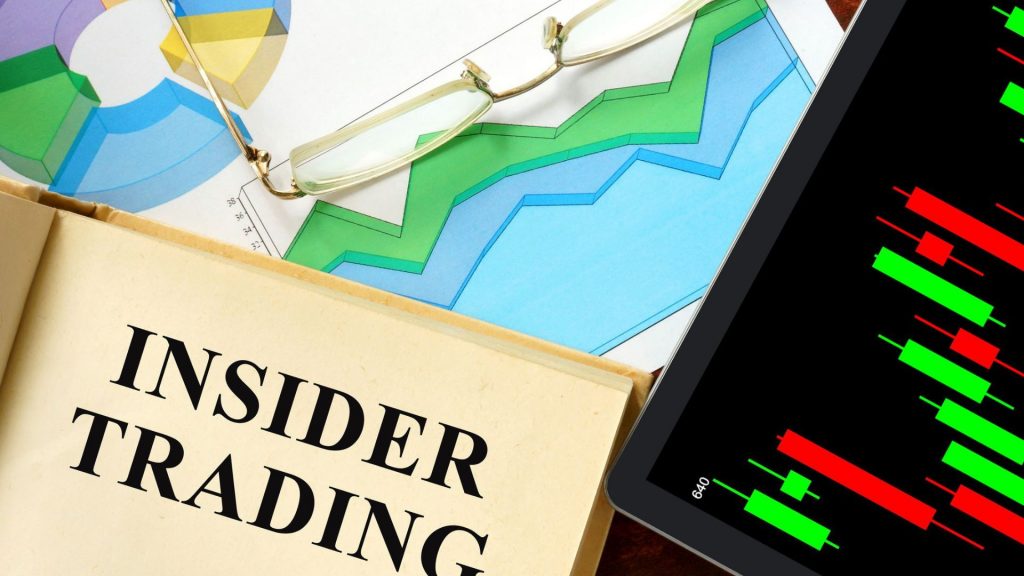What is insider trading? Inside information is information of a precise nature, which has not been made public, and relates, directly or indirectly, to one or more issuers to one or more financial instruments, or concerns the trade in these financial instruments, and which, if it were made public, would be likely to have a significant effect on the prices of those financial instruments or the price of related derivative financial instruments.

What Is Insider Trading?
Insider trading is an illegal activity, the organizations are required to implement appropriate policies and processes to ensure that employees of the company are not involved in insider trading.
In addition, there is a separate definition of “inside information” about commodity derivatives or auctioned products based on them.
The inside information is the information which:
- is precise;
- has not been made public;
- relates directly or indirectly to the company’s shares or other financial instruments;
- if it were to be made public would be likely to have a significant effect on the price.
An insider may be a person or persons charged with the execution of orders concerning financial instruments, receiving information conveyed by a client, and relating to the client’s pending orders in financial instruments, relating, directly or indirectly, to one or more issuers or one or more financial instruments, and which, if it were made public, would be likely to have a significant effect on the prices of those financial instruments, the price of related spot commodity contracts, or on the price of related derivative financial instruments. (Article 7(1)d of the MAR).
Insider’s Information
The insider may have a piece of precise information, which means the information that concerns:
- a set of circumstances which exist or which may reasonably be expected to come into existence; or
- an event which has occurred or which may reasonably be expected to occur;
- where it is specific enough to enable a conclusion to be drawn as to the possible effect of that set of circumstances or event on the prices of financial instruments or the related derivative financial instrument, the related spot commodity contracts, or the auctioned products based on allowances.
Concerning commodity derivatives, inside information concerns information of a precise nature, which has not been made public, relating, directly or indirectly to one or more such derivatives or relating directly to the related spot commodity contract, and which, if it were made public, would be likely to have a significant effect on the prices of such derivatives or related spot commodity contracts, and where this information which is reasonably expected to be disclosed or is required to be disclosed following legal or regulatory provisions at the European Union or national level, market rules, contract, practice or custom, on the relevant commodity derivatives markets or spot markets.
Under Section 14 of the MAR, there is a prohibition of insider dealing and attempts to engage in insider dealing by carrying out or arranging a transaction in financial instruments. It is also prohibited to recommend another person to engage in insider dealing or induce them to do so. Finally, it is prohibited to unlawfully disclose inside information.
Factors To Consider
The following factors may be taken into account in determining whether or not a person who possesses inside information ought to know that it is inside information as per the Market Abuse Regulation:
- if a normal and reasonable person in the position of the person who has inside information would know or should have known that the person from whom he received it is an insider; and
- if a normal and reasonable person in the position of the person who has inside information would know or should have known that it is inside information. To be categorized as an insider in article 8(4) of the Market Abuse Regulation, the person concerned does not need to know that the information concerned is inside information.
Certain factors are considered as per MAR to determine whether or not inside information has been made public, such as:
- whether the information has been disclosed to a prescribed market or a prescribed auction platform through a regulatory information service or RIS or otherwise following the rules of that market;
- whether the information is contained in records that are open to inspection by the public;
- whether the information is otherwise generally available, including through the Internet, or some other publication (including if it is only available on payment of a fee), or is derived from information that has been made public; and
- whether the information can be obtained by observation by members of the public without infringing rights or obligations of privacy, property, or confidentiality.
Final Thoughts
Insider trading is defined as the purchase or sale of stock in a publicly traded company by someone who has non-public, material information about that stock. Material nonpublic information is any information that has not been made public that could have a significant impact on an investor’s decision to buy or sell a security. This type of insider trading is illegal and carries severe penalties, including both fines and jail time. Insider trading is permissible as long as it follows the SEC’s rules.








